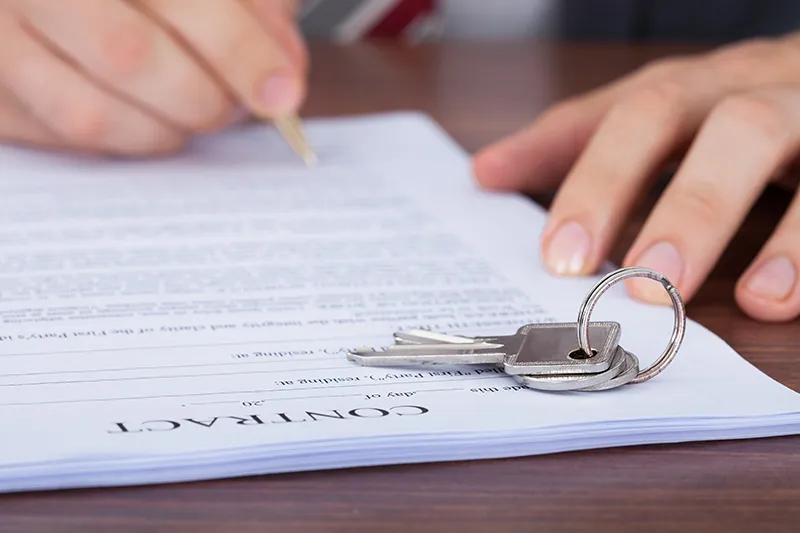Real Estate Transactions
Real estate transactions are the pivotal processes that underpin property dealings, encompassing the intricate world of buying, selling, or transferring property ownership. For our clients, it’s essential to have a comprehensive understanding of the key components that make up these transactions, ensuring a well-informed and confident approach to real estate endeavors.
Property Valuation: Understanding a property’s market value is where it all begins. This knowledge sets the stage for making informed decisions, whether you’re selling a property at a reasonable price or making a savvy investment.
Negotiations: The negotiation phase is where you shape the terms of the transaction. This is where you discuss sale prices, contingencies, and other critical aspects of the deal. It’s a part of the process where your knowledge can truly impact the outcome.
Legal Documentation: Contracts and paperwork may seem mundane, but they are the foundation of any real estate transaction. They protect your rights and interests. So, understanding their importance is vital.
Property Inspection: Property inspections are like peering behind the curtain. They help you understand the property’s condition and any issues it might have. Armed with this knowledge, you can ensure the property meets your expectations.
Financing: Many real estate transactions involve financing. Whether it’s a mortgage or other financial arrangements, having a grasp of the financing aspects is crucial.
Real estate transactions are the pivotal processes that underpin property dealings, encompassing the intricate world of buying, selling, or transferring property ownership. For our clients, it’s essential to have a comprehensive understanding of the key components that make up these transactions, ensuring a well-informed and confident approach to real estate endeavors.
Property Valuation: Understanding a property’s market value is where it all begins. This knowledge sets the stage for making informed decisions, whether you’re selling a property at a reasonable price or making a savvy investment.
Negotiations: The negotiation phase is where you shape the terms of the transaction. This is where you discuss sale prices, contingencies, and other critical aspects of the deal. It’s a part of the process where your knowledge can truly impact the outcome.
Legal Documentation: Contracts and paperwork may seem mundane, but they are the foundation of any real estate transaction. They protect your rights and interests. So, understanding their importance is vital.
Property Inspection: Property inspections are like peering behind the curtain. They help you understand the property’s condition and any issues it might have. Armed with this knowledge, you can ensure the property meets your expectations.
Financing: Many real estate transactions involve financing. Whether it’s a mortgage or other financial arrangements, having a grasp of the financing aspects is crucial.
Closing: The closing is where it all comes together. It’s the final step, where funds are transferred, and ownership changes hands. Knowing what to expect in this phase empowers you to approach it with confidence.
Closing: The closing is where it all comes together. It’s the final step, where funds are transferred, and ownership changes hands. Knowing what to expect in this phase empowers you to approach it with confidence.
Our Services

Purchase Agreements

A purchase agreement is a legally binding document that formalizes the terms and conditions of goods or service transactions, offering clarity and legal protection. Key elements include party identification, product or service descriptions, purchase price, payment terms, delivery conditions, warranties, and title transfer. These agreements ensure transparency and reduce misunderstandings and disputes. They carry legal weight, guaranteeing obligations and remedies for breaches. Purchase agreements manage risk, address regulatory compliance, and enhance payment security. Additionally, they establish dispute resolution mechanisms, safeguarding both parties’ interests and transaction success.
Lease and Rental Agreements

Lease and rental agreements, essential for property or asset leasing, detailed terms including party identification, property specifics, payment structures, maintenance duties, security deposits, and termination processes. They ensure legal clarity, financial security for landlords, and tenant safety. These agreements protect property value and offer legal recourse in disputes, promoting harmonious landlord-tenant relations. With flexible lease durations and clear termination notice periods, they establish a predictable and secure leasing environment.


